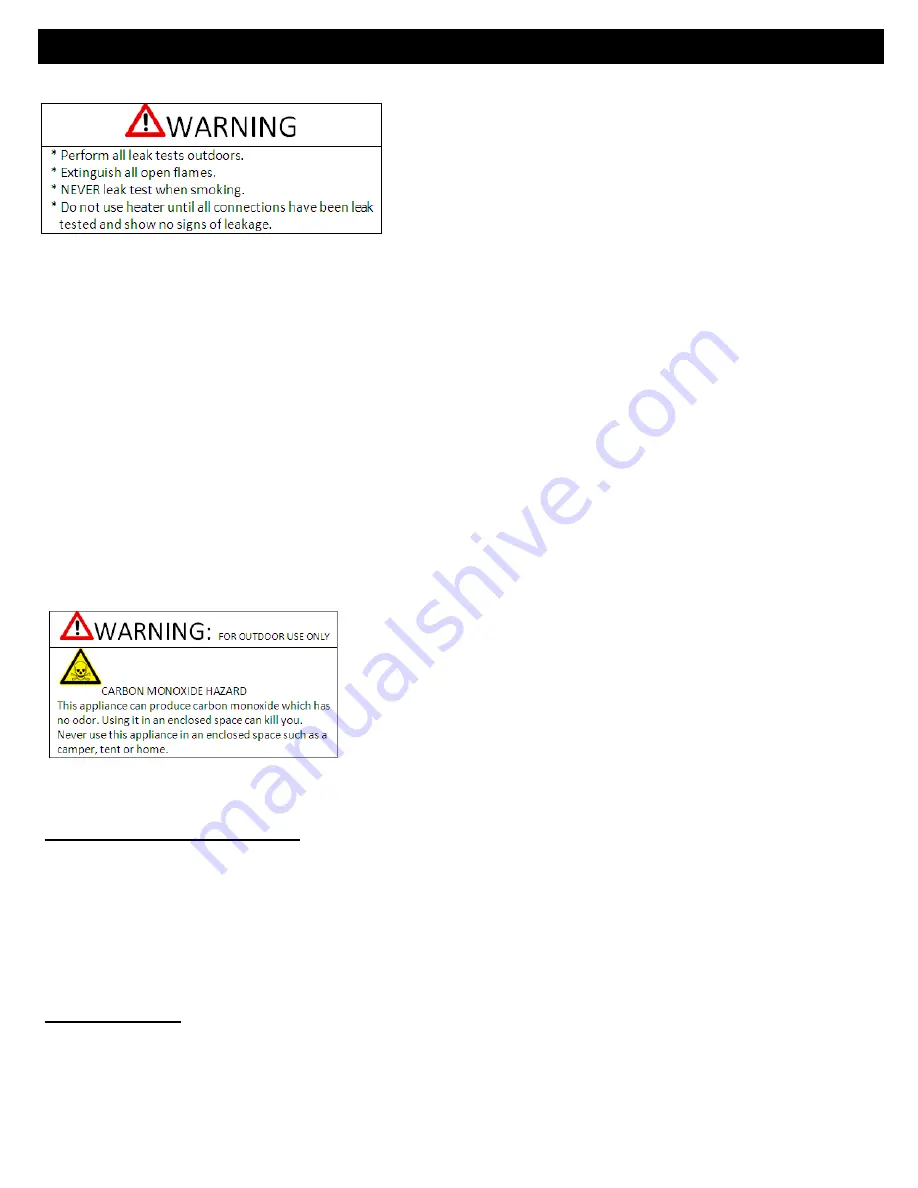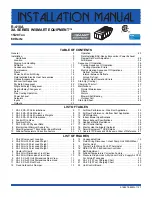
17
Leak Test
1. Make 2-3 oz. of leak test solution (one part liquid dishwashing detergent and three parts water).
2. Apply several drops of solution where hose attaches to regulator.
3. Apply several drops of solution where regulator connects to cylinder.
4. Make sure all patio heater valves are OFF.
5. Turn cylinder valve ON.
IF BUBBLES APPEAR AT ANY CONNECTION, THERE IS A LEAK.
1. Turn cylinder valve OFF.
2. If leak is detected at hose/regulator connection, tighten connection and perform another leak test. If bubbles
continue to appear, call our customer service hotline at
1-866-985-7877
, 9 a.m. – 6 p.m., EST, Monday –
Friday.
3. If leak is detected at regulator/cylinder valve connection, disconnect, reconnect, and perform another leak
check. If you continue to see bubbles after several attempts, cylinder valve is defective. Call our customer
service hotline at
1-866-985-7877
, 9 a.m. – 6 p.m., EST, Monday – Friday
IF NO BUBBLES APPEAR AT ANY CONNECTION, THE CONNECTIONS ARE SECURE.
Note: Whenever gas connections are loosened or removed, you must perform a complete leak test.
Caution:
Do not attempt to operate this appliance until you have read and understand all Safety Information in
this manual and all assembly is complete and leak checks have been performed.
Before Turning Gas Supply ON
:
1. Your heater was designed and approved for OUTDOOR use only. Do NOT use it inside a building, garage, or
any other enclosed area.
2. Make sure surrounding areas are free of combustible materials, gasoline, and other flammable vapors or
liquids.
3. Ensure that there is no obstruction to air ventilation. Be sure all gas connections are tight and there are no
leaks.
4. Be sure the cylinder cover is clear of debris. Be sure any component removed during assembly or servicing is
replaced and fastened prior to starting.
Before Lighting
:
1. Heater should be thoroughly inspected before each use, and by a qualified service person at least annually. If
re-lighting a hot heater, always wait at least 5 minutes.
2. Inspect the hose assembly for evidence of excessive abrasion, cuts, or wear. Suspected areas should be leak
tested. If the hose leaks, it must be replaced prior to operation. Only use the replacement hose assembly
specified by the manufacturer.
OPERATING INSTRUCTIONS
Summary of Contents for PH01-S XL Series
Page 3: ...3 SAFETY INFORMATION ...
Page 4: ...4 SAFETY INFORMATION ...







































